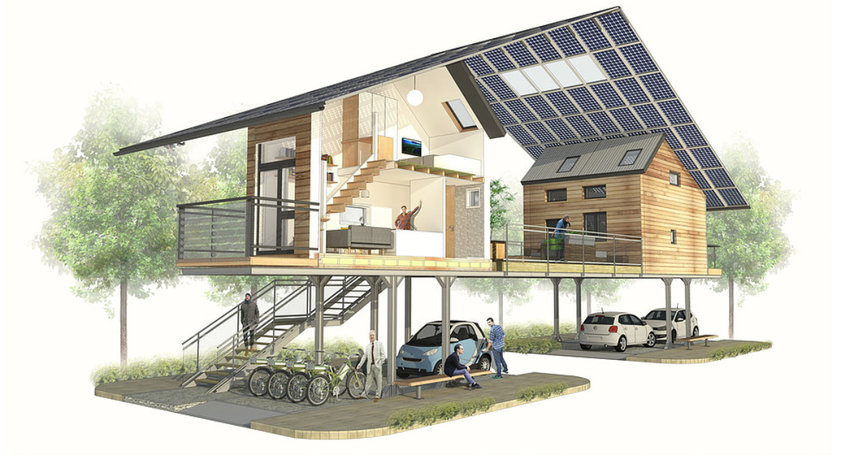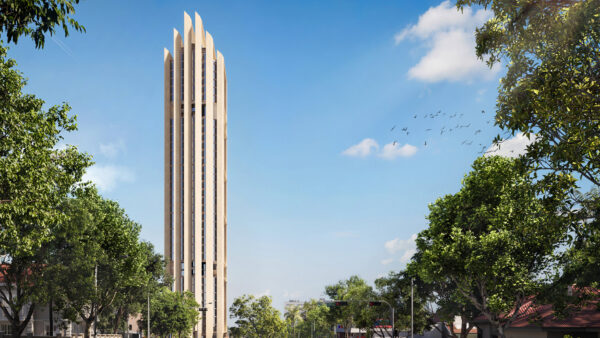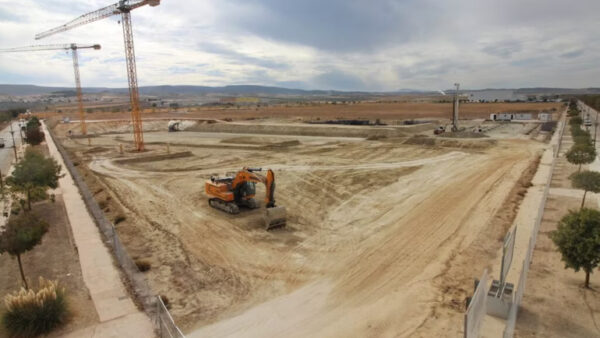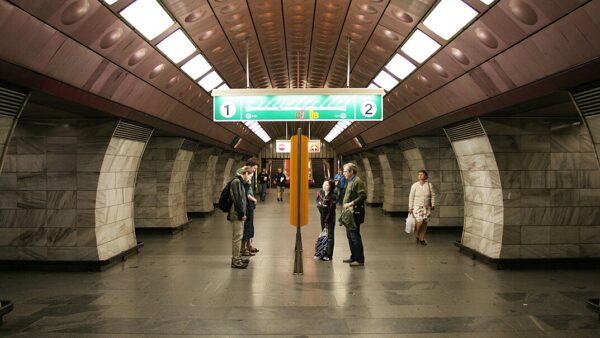ZED Pods Limited, a new independent UK company, has been launched to provide a solution to the country’s housing crisis: pop-up villages made from cheap, prefabricated micro-homes on platforms above car parks.
According to the company, the ZEDpod is a prefabricated, super energy-efficient micro-home that can sit on an elevated platform above car parks at big retail outlets, hospitals or municipal offices.
They can be installed at any large surface car park, such as those owned by local authorities, supermarkets, universities, schools and hospitals, and as all these locations tend to have good transport links, they come with in-built work and leisure accessibility– Bill Dunster, Principal of ZEDfactory
The entry level model, intended for two people, costs £65,000 ($80,000), and can be bought outright or installed and rented out for £650 a month.
ZED Pods Ltd. has been funded by the UK government’s Enterprise Investment Scheme (EIS) with the objective of manufacturing and erecting the pods across the UK.
Designed by RIBA award-winning zero carbon design and development company, ZEDfactory, ZEDpods is billed as an affordable starter home for young singles or couples, and a housing solution for key workers, student accommodation and general needs.
With a durable, permanent construction, the pods can be installed as singles, doubles, or clustered together as “pop-up villages”.
The company says it has a funding partner that will build, maintain and lease pods back to local authorities and healthcare organisations for use as worker housing, in exchange for long term leases for “air rights” above their car parks.

With a durable, permanent construction, the pods can be installed as singles, doubles, or clustered together as “pop-up villages”
The homes can also be easily relocated at low cost and with minimal wastage, the company says.
The ZEDpod is built to high energy-performance standards, far in excess of building regulations, and the external envelope is designed to be around 20 years to first maintenance.
The home has integrated roof-mounted solar panels that charge a battery store, plus heat recovery ventilation and large triple glazed windows.
The pods are constructed off site in the UK and can be erected in a matter of days with a forklift, ZED Pods said. They have a patented raft foundation that exerts no more pressure on existing tarmac than a conventional vehicle.
“The ZEDpod is an exceptionally cost-effective way of building, and the scope is huge,” said Bill Dunster, Principal of ZEDfactory.
“They can be installed at any large surface car park, such as those owned by local authorities, supermarkets, universities, schools and hospitals, and as all these locations tend to have good transport links, they come with in-built work and leisure accessibility.”
The ZEDpod is on display at BRE Innovation Park.
Images: Renders by ZEDfactory
Comments
Comments are closed.







Worrying that the only thing we can now offer young teachers, medical staff and council workers are eco-friendly trailer parks. Not sure how long any relationship is likely to survive living in a double decker caravan, although the privacy gained compared to living in shared flats is clearly going to be welcome. As someone who lived for over 20 years in a 32 sqm studio flat the winning formula was forming a walk-in wardrobe on the route to the shower room, and having a separate kitchen so that you don’t have to sleep with your food. 2.1m width is a corridor space, not a Living Room. My organisation has found previous generation of key worker housing impossible to let because of miserable space standards – beware being too mean here!
Yes, exhaust pollution is an issue but maybe this problem will decrease when electric cars become cheaper and therefore more popular. Also the opportunity for solar panels allowing electric car charging would be an obvious plus. Local authorities should look at this idea carefully as they have land such as commuter car parks that they could easily make available.
I like the concept but has anyone tested the response of Town Planners and Environmental Health people?